A Guide to Adolescent Mental Health: Rates, Signs, and Treatment Methods
In this guide:
- What are the rates of different mental health disorders in adolescents?
- Why do some teenagers develop mental health disorder symptoms?
- What are the signs and symptoms of a mental health disorder in teens?
- What can adults do if a teen is exhibiting signs of a mental health disorder?
- How should a parent talk to their adolescent about getting treatment for a mental health condition?
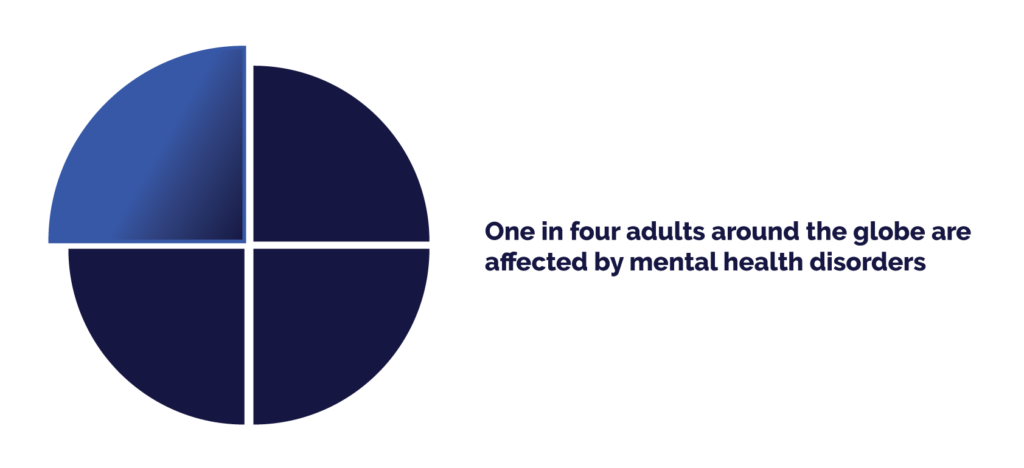
Mental health disorders affect one in four adults around the globe. They are as common as acne, myopia, or cavities.
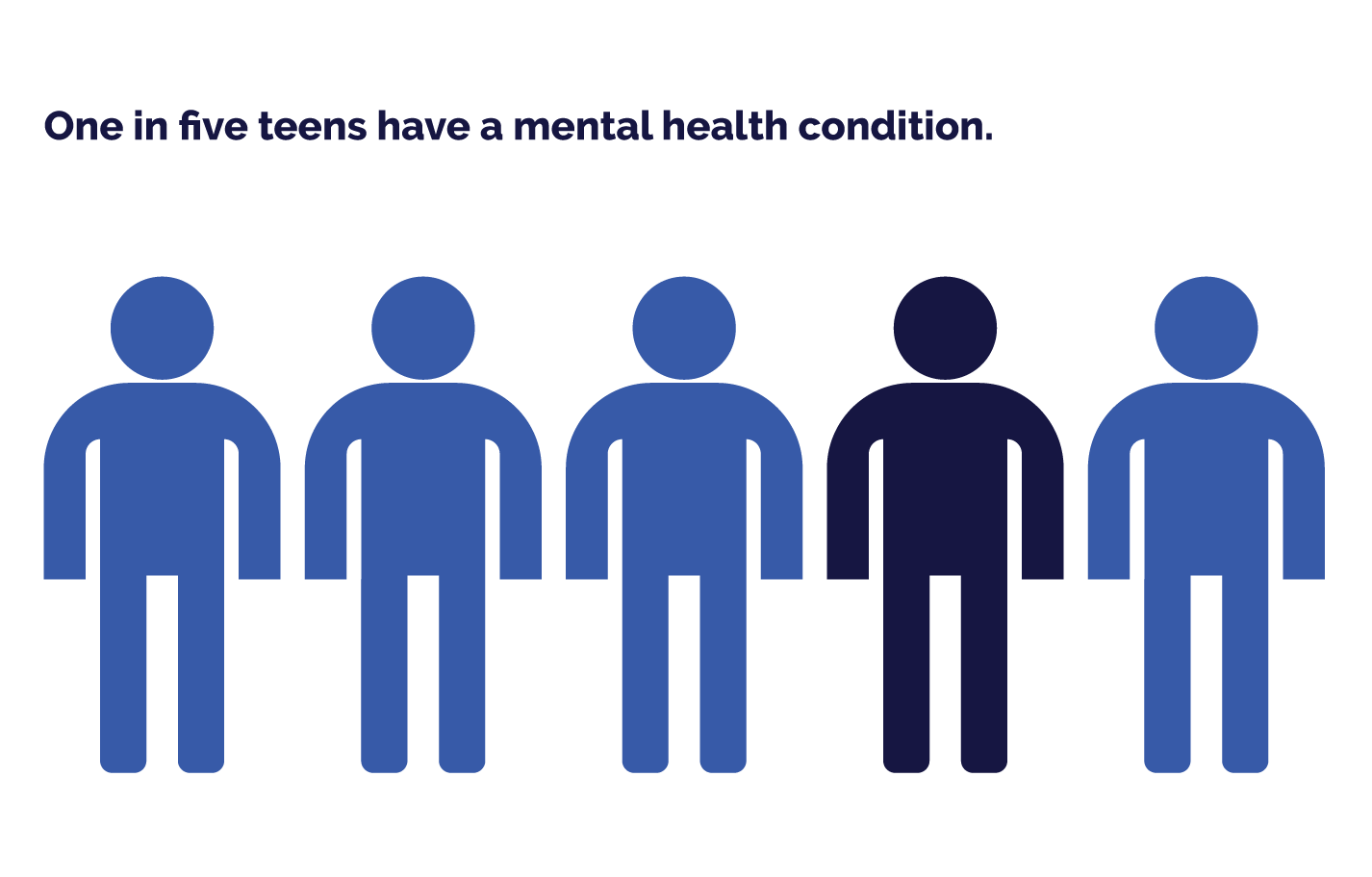
For adolescents between the ages of twelve and seventeen, one in five will be affected by an adverse mental health condition. Mental health disorders are more common in adolescent girls than boys, with one in four teen girls affected.
There are many reasons why someone develops a mental health disorder as a teen. An adolescent’s unique genetic background, their temperament, and their environment can all play a role in triggering mental health disorder symptoms. The majority of adults with a mental health condition will first experience symptoms during the adolescent years.
For parents, noticing the signs or symptoms of a mental health condition in their teen can be overwhelming and painful. It’s common for loved ones to deny the symptoms, become angry, or blame others for their child’s condition. When parents don’t know where to turn for help, teens can’t get the treatment they need, and family relationships can become strained. The following guide will explore the rates of adolescent mental health disorders, the signs and symptoms, and what treatment options are available to teenage patients.
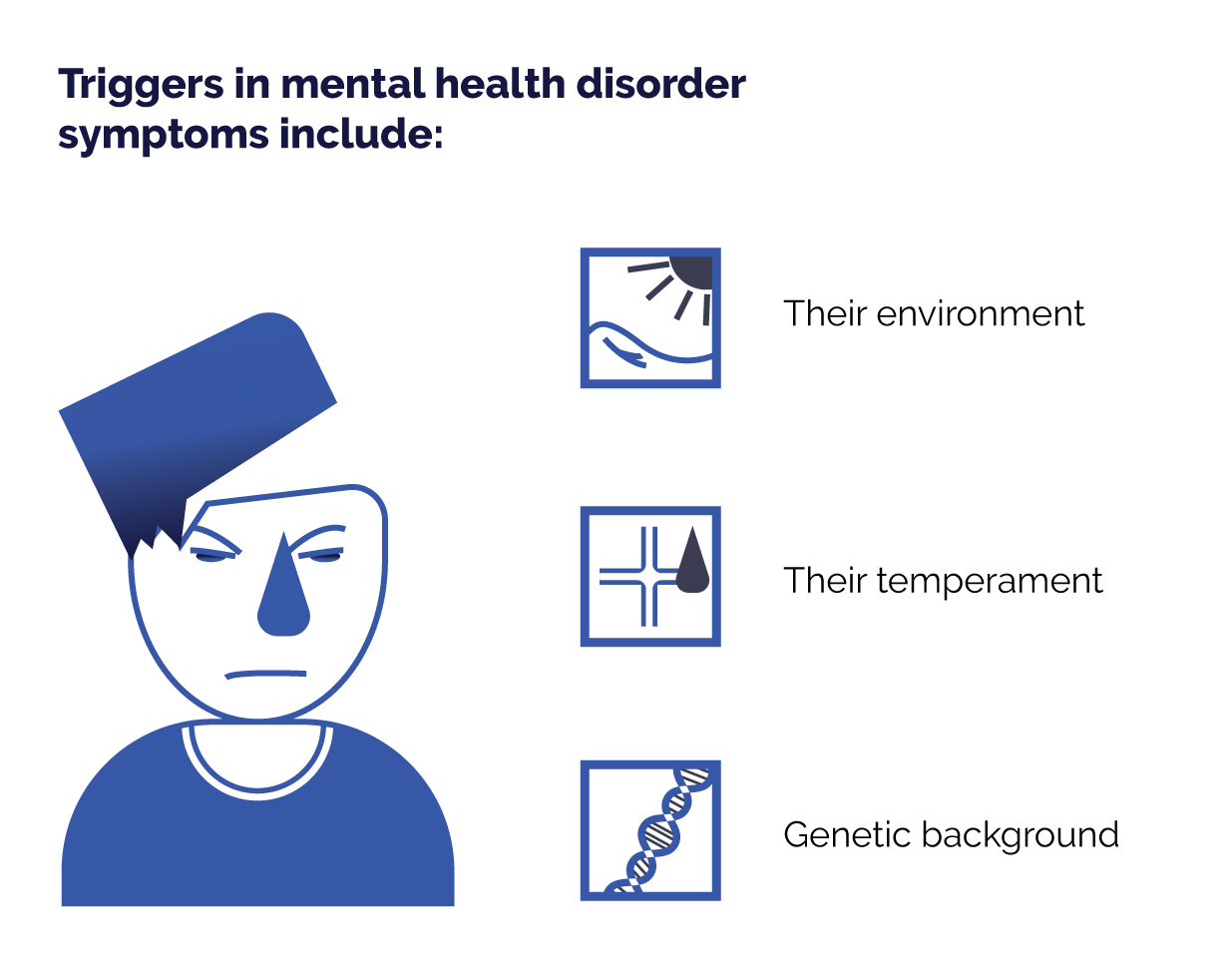
What are the rates of different mental health disorders in adolescents?
One in five teens have a mental health condition, and up to one in four adults have been diagnosed with a mental health disorder.
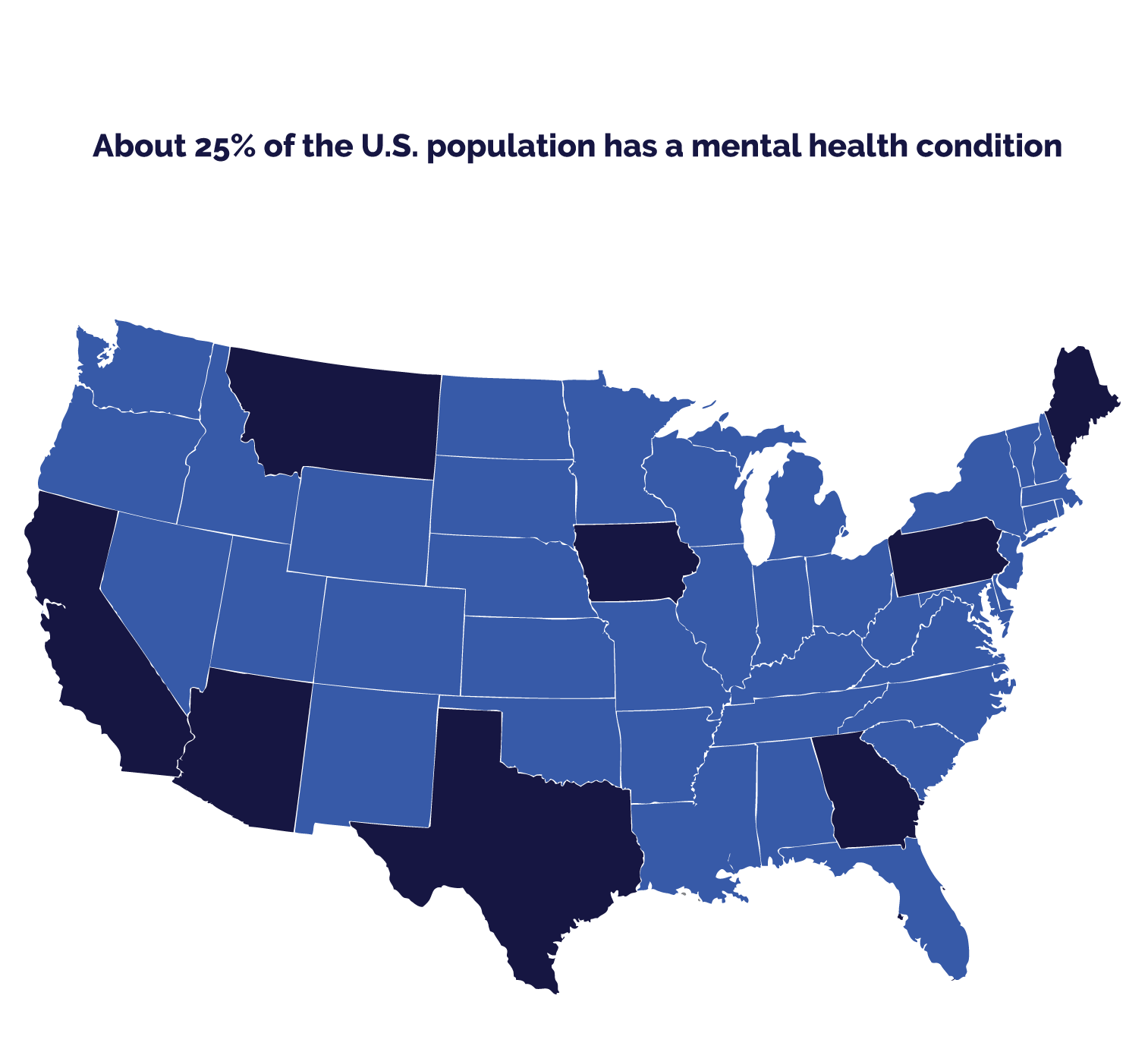
About 25% of the U.S. population has a mental health condition, but only 4% of healthcare spending in the U.S. is allotted to psychiatric health care. For parents noticing the signs of a mental health disorder in their teen, it can be incredibly difficult to know where to go for help, or what support is even available.
Having a mental health disorder makes life in general difficult, if not impossible to handle. What healthy people do with ease, like socializing, working, or going to school, is extremely challenging for a person with a mental health disorder. Early intervention is crucial for preventing a person with a mental health disorder from becoming disabled later in life. Studies have found that up to 25% of the homeless have a severe mental health condition, compared to 6% of those who are not homeless.
Untreated mental health disorders are also responsible for high rates of drug use among vulnerable populations. 29% of people in drug or alcohol rehab also have a mental health disorder. People will sometimes turn to drugs or alcohol to alleviate untreated symptoms of a mental health condition.
Teens who experience an episode of depression are twice as likely to abuse alcohol than teens who aren’t depressed. Studies have found that 29% of teens who drink alcohol abuse alcohol after experiencing a major depressive episode.
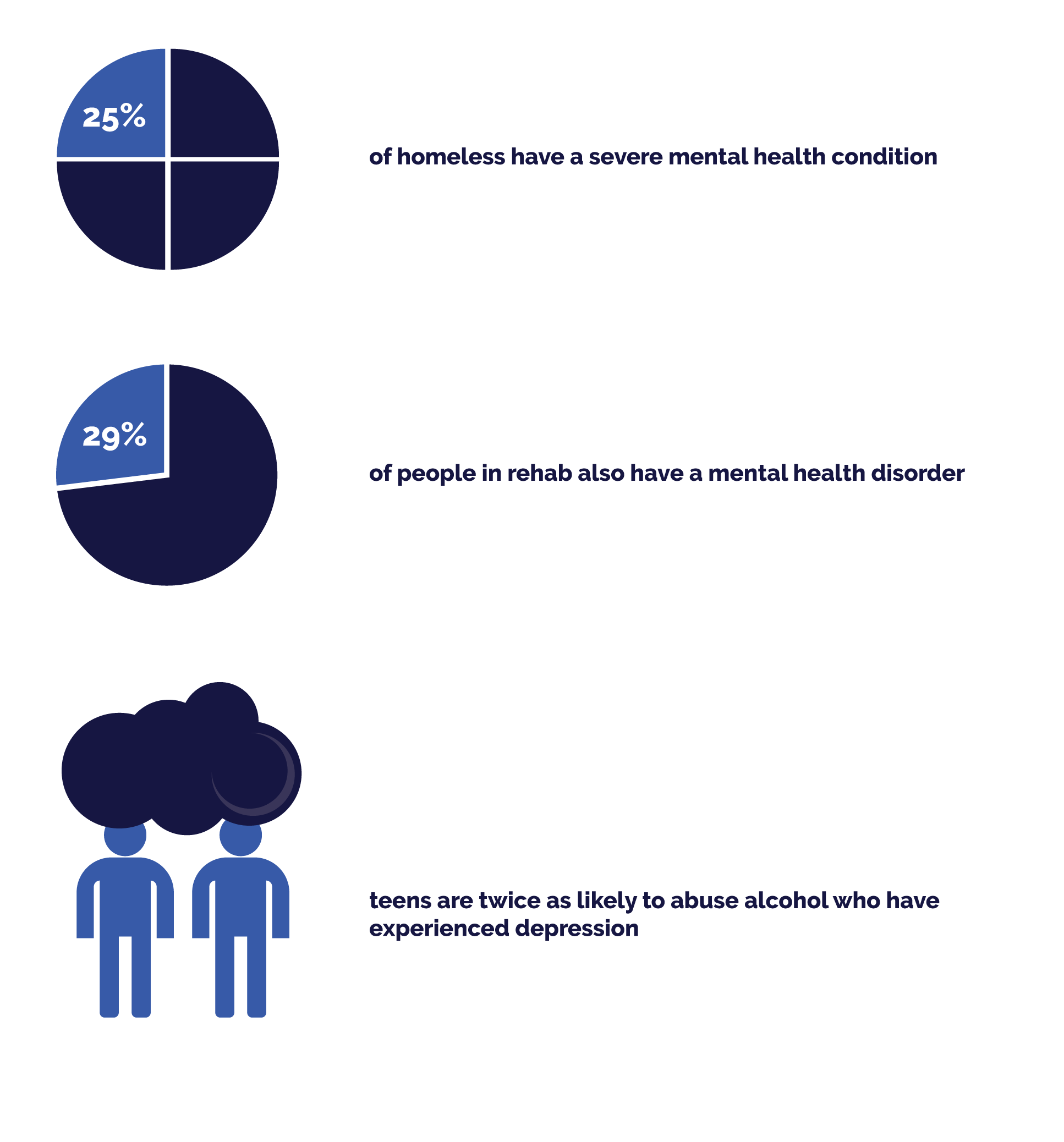

About 14.5% of adolescents who do not have depression will abuse alcohol for other reasons. Similar rates apply to drug abuse among teenagers.
In teenagers, the most common mental health disorders are:
- Anxiety disorders, including specific phobias and OCD – 32%
- Depression and mood disorders – 13%
- ADHD – 9%
- Eating Disorders – 3%
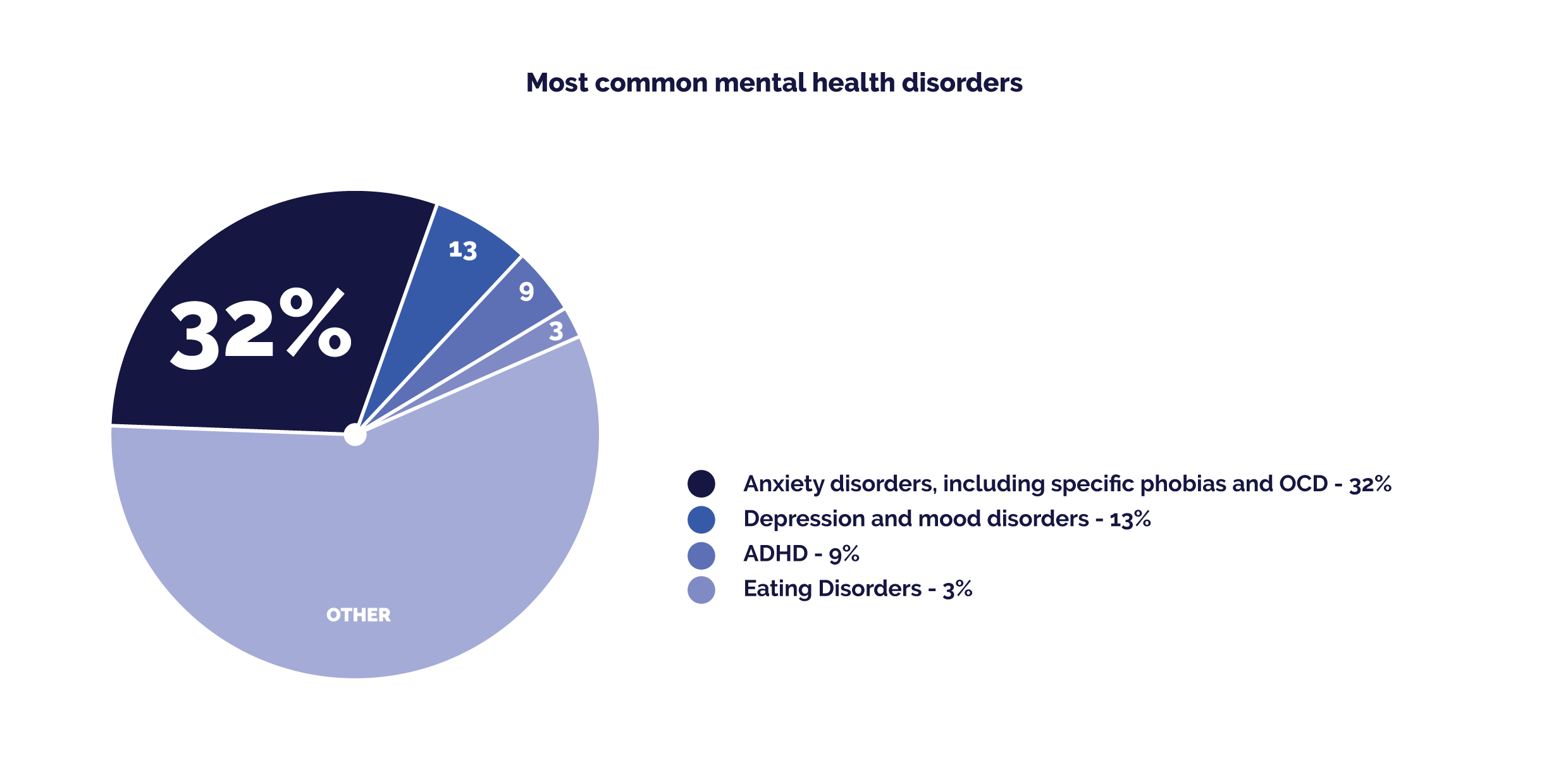
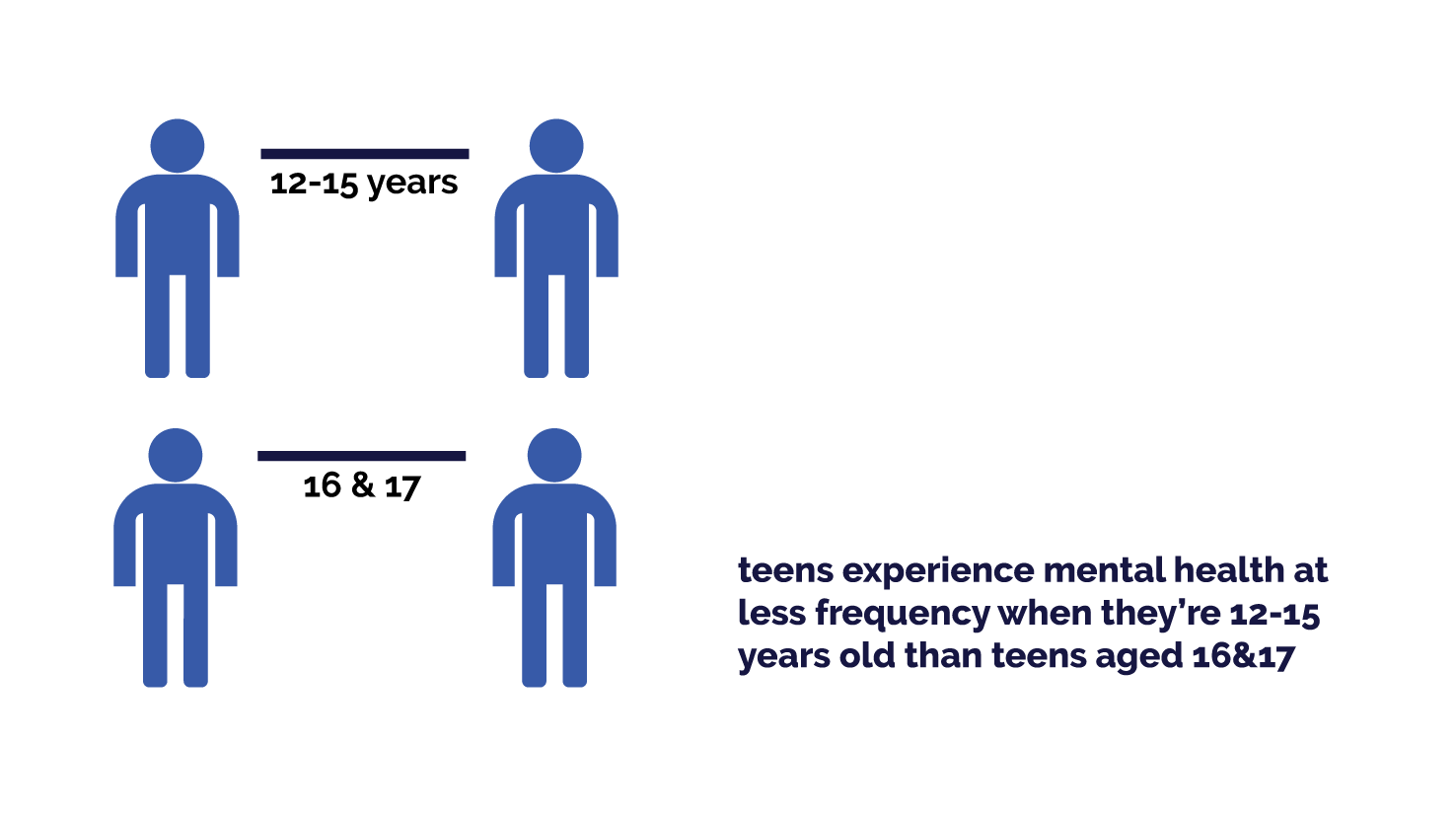
These mental health conditions become more common as adolescents age. Studies have found that younger teens between 12 and 15 experience mental health symptoms at less frequency than teens of ages 16 and 17.
Current research on adolescent mental health has been looking into the roles that toxic stress and trauma play on the development of mental health disorders in teens. Research is also focused on what factors help promote resilience to toxic stress and traumatic situations in adolescent patients. Furthermore, research continues to evolve regarding the various interventions that can help teens alleviate their symptoms, including therapy and preventative approaches. Studies on adolescent brain imagery have found links between childhood experiences, changing biology, and the manifestation of mental health disorder symptoms on health, education, and social outcomes in teens.
There is no singular cause of mental health disorder. While no one is 100% immune to developing a mental illness, certain known risk factors can increase the chances of a teenager exhibiting symptoms. Abuse, trauma, temperament, toxic stress, the biochemical changes of adolescence, and having a close relative with a mental disorder can increase a teen’s risk of becoming mentally ill. But even if a person has all of these risk factors present in their life, it is no guarantee that they will become sick. On the flipside, a teen who does not have these risk factors can become ill.

What are the signs and symptoms of a mental health disorder in teens?
Contrary to popular belief, the presence of a mental health disorder is not based on either the presence or the absence of a set of symptoms. In general, mental health encompasses a variety of outlooks and actions, including a person’s ability to function and feel well despite setbacks. A lack of resiliency to adverse, stressful, or exciting situations can be indicative of a mental health condition.
The signs and symptoms of mental health conditions in teens often differ from adults who suffer from the same disorder. For example, adults with depression are more likely to feel sad and fatigued and uninterested in their usual activities. Teens with depression are more likely to become agitated, angry, and lash out at others without cause. The same condition can cause different symptoms in different teens. A teen with depression may eat to excess and gain weight, while another teen with depression will be too upset to eat and may lose weight in a short period. The number of symptoms manifested will also vary depending on the individual. Although all mental health conditions in teens are serious and need addressing by a professional, the degree, number, and duration of symptoms will vary for each patient. Exhibiting fewer symptoms do not necessarily entail that there isn’t an issue.
What can make discerning the signs and symptoms of a mental health condition so confusing for parents is that experiencing an emotion that is similar to a mental health symptom once or infrequently is often normal teenage behavior. Parents can make the mistake of overreacting, or not reacting at all and chalking up a teen’s mental health symptom to adolescent angst.
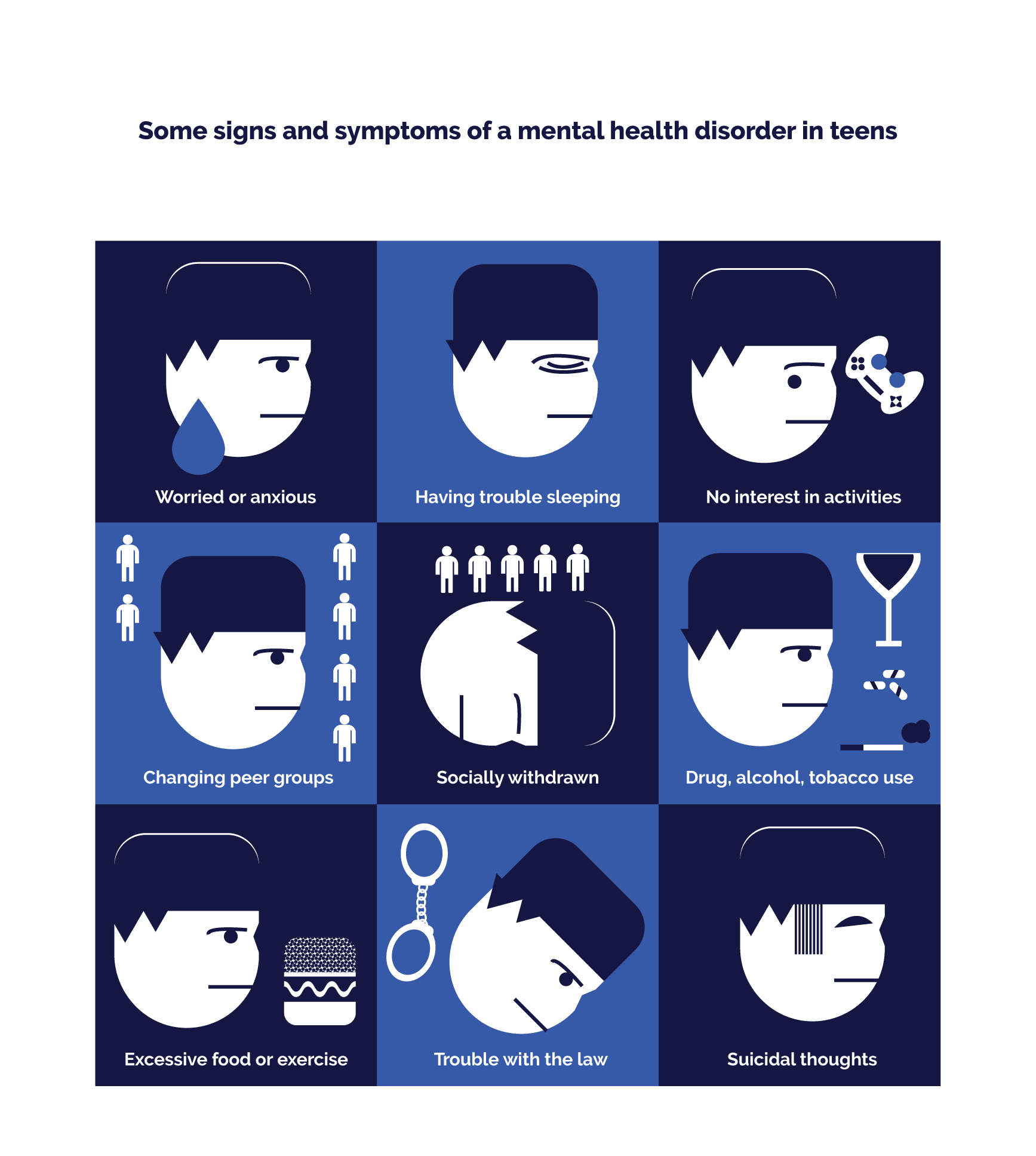
But if parents or guardians notice the following signs or symptoms present for several weeks, and showing up as a pattern, something more than typical teenage angst is most likely to blame:
- Exhibiting anger and irritability that is out-of-character
- Feeling extremely worried or anxious
- Having trouble sleeping, either sleeping too much or too little
- Changes in eating patterns, and changes in weight
- Not having an interest in activities they’d usually enjoy
- Completely changing their peer group
- Becoming socially withdrawn
- Exhibiting signs and symptoms of grief for a long time after a loss
- Abusing drugs, alcohol, or tobacco
- Binge eating, purging, or excessively counting calories and exercising
- Becoming violent, or destroying property
- Getting into trouble at school or with law enforcement
- Exhibiting symptoms of fatigue and lethargy
- Feeling “out of control” of their emotions
- Experiencing thoughts of suicide
- Engaging in self-harming behaviors, such as cutting, burning, or picking at the skin
- Hearing voices, or thinking someone or something else is controlling their thoughts
What can adults do if a teen is exhibiting signs of a mental health disorder?
Studies consistently show that early intervention is critical for mental health disorders. Failing to address and adequately treat adolescent mental health conditions can set teens up for unnecessary suffering as young adults. Trying to navigate the years between adolescence and young adults is challenging even for those who are healthy. For a teenager with an untreated mental health condition, these years can be dangerous. Chronic, untreated mental health disorders can cause serious physical conditions too, and lead to premature death. Adolescents who enter their young adult years with untreated mental health disorders are at high risk of becoming a victim of violent crime, poverty, and homelessness. Fortunately, there is help for teens that are proven effective.
Coordinated, and early intervention will give teens and their families the successful outcome they need to alleviate mental health disorders symptoms. Coordinated specialty care offers teens access to psychotherapy, medication, experienced case managers, family education, and support for at work or school. Studies have found that teenagers who enter a coordinated care program for mental health were able to stay in treatment programs for longer, and were able to achieve long-term improvement in symptom relief, as well as repair and strengthen their relationships, stay in school, and improve the overall quality of their lives.
Family therapy under the guidance of a qualified therapist gives families the tools they need to communicate with distressed teens. The most effective treatment plans will vary depending on their teen’s mental health condition if they have a co-occurring substance use disorder, and their circumstances and temperament. Teens with depression often recover with a combination of medications, and cognitive behavioral therapy. A teenager with an anxiety disorder will typically benefit from therapy and mindfulness exercises. For teens who have experienced trauma, exposure therapy can help.
Despite their commonality, mental health disorders are still stigmatized in society. It’s not at all uncommon for teens to feel ashamed that they have a mental health disorder, and they may try to deny, blame-shift, or otherwise, refuse to admit that they have a disorder.
For parents, it’s critical that they approach the intervention appropriately. Parents and guardians looking to help a distressed teen will need to be respectful and understanding of their teen’s feelings, and avoid getting angry at their child for behaviors related to their mental illness. That does not mean imposing limits or disciplining their child, but it does mean that they will need to recalibrate their expectations. It’s not always possible for parents to hold their teen to the same set of standards before they became sick. They may never be the same as they were before they developed mental health symptoms.
If a teenager is exhibiting signs of a mental health disorder, parents should make an appointment with a licensed psychologist or psychiatrist with experience in treating adolescents. Sometimes, it is not possible to get an appointment with these specialists for many months, in which case a parent should make an appointment with their child’s pediatrician. Parents will need to provide the doctor with a description of symptoms and when they began, and how they are affecting their teenager.
If a parent suspects their child is hearing or seeing things, or they are exhibiting suicidal behavior, it’s imperative that they seek medical attention immediately.
It’s important for parents to understand that mental health conditions are complex disorders that can vary significantly for each person. Adolescents can be challenging to treat because mental health disorder symptoms can mimic usual teenage angst and vice versa. Furthermore, teens with mental health conditions may turn to drugs and alcohol to cope, which can also lengthen the diagnosis and recovery period.
Families of teens with a mental illness will need to look for a provider who is experienced with the challenges that face teen’s with a mental health condition, and how to treat these patients effectively. Facilities that offer additional family therapy support and hands-on guidance from trained psychologists is ideal. Teenagers often need special intervention with their school, and they will need accommodations to continue their education. A facility that is experienced with helping teenagers with mental health conditions can help facilitate these accommodations with the school.
There are a variety of treatment options available for teens. But unfortunately, they can be difficult to locate. Concerned parents and guardians can find a directory of mental health treatment facilities for teens provided by SAMSHA on their website. The toll-free, 24/7 suicide hotline can also provide parents with a list of resources for mental health treatment for teens.
Parenting a sick child is stressful, and navigating treatment options can be overwhelming. But for the future health of their child, it is imperative that parents and guardians protect their teen, and provide them with early intervention services for adolescent mental health conditions.
This guide is intended to be informational. If you are considering help for you or your loved one and would like more information, please consult a medical professional or licensed treatment facility.

